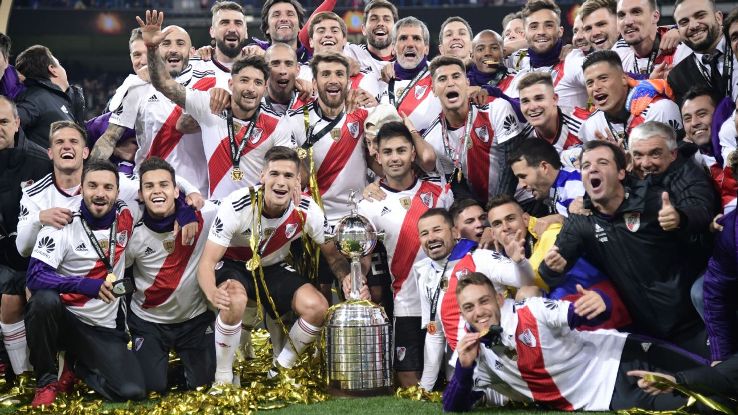
The 60th version of the Copa Libertadores kicks off in earnest this week, when the group phase gets underway.
It has been preceded by a six-week long series of qualifying rounds, with 19 clubs competing for the final four group places, and the conclusion that emerged from the action is one of balance. Many of the ties were close, decided by dramatic late goals or penalty shootouts, and all ten countries lost at least one representative during the qualifying process.
Will such balance be preserved during the rest of the competition? The probability is that it will not and both force of tradition and recent changes point toward a competition dominated by clubs from Argentina and Brazil. In 59 previous editions of the competition, on 43 occasions has the trophy ended up in the hands of a club from one of the continent’s big two.
Uruguayan clubs were once a major force — eight titles are shared between the Montevideo pair of Penarol and Nacional — but their last triumph came more than 30 years ago. Since then, with sporadic interruptions from Colombia or Paraguay and single successes from Chile and Ecuador, Argentina and Brazil have enjoyed a virtual monopoly.
Their position has been further strengthened over recent years. In 2017, an overhaul saw the Libertadores schedule amended; rather than being squeezed into the first half of the year, it now runs to the end of November. This benefits the clubs with deeper pockets, who are best equipped to reinforce their squads during the course of the campaign.
Moreover, the big two were awarded more slots. The latest group phase kicks off with an astonishing — and surely excessive — 13 of the 32 sides drawn from either Brazil or Argentina, who have also provided all but three of the last 16 quarterfinalists.
The numbers speak to domination and yet the duopoly hides a mystifying dynamic, which is the remarkable underachievement of Brazilian clubs. True, Gremio won the competition in 2017 and came close to making last year’s final, but they remain their nation’s only finalist in the last five editions.
Brazilian teams have more financial resources than their continental rivals, although their best players move abroad, at an ever younger age. But they can hang on to mid-ranking talent and buy in promising replacements from elsewhere in South America.
Maybe last year’s disappointment shed some light on the problem. Most of the Brazilian teams failed as a consequence of excessive caution and a model of play that, in decisive games, tended to err toward covering up and running down the clock, while hoping for set pieces or sporadic breaks on the counter.
It did not work. Indeed, Gremio should stand as a reference after been undone against River Plate by an overly defensive approach in the semifinal, having been, in general over the last three years, an attractive, possession-based side. If lessons have been learned, then more Brazilian sides will share take a bold approach.
But before strategy becomes key at the knockout stage, for the next two months the name of the game is simply to make it through the group stages and some of the favourites have interesting groups.
Brazilian champions (and last year’s Libertadores semifinalists) Palmeiras, for example, are in with the dangerous Colombian champions Junior, plus 2014 winners San Lorenzo from Argentina and Peru’s Melgar, who are battle hardened after fighting their way through the qualifying rounds.
Gremio face underestimated Libertad of Paraguay and Chilean champions Universidad Catolica, plus Rosario Central of Argentina, who are in terrible current form but remain capable of improvement.
Rio giants Flamengo, often frustrated in this competition in recent years, have invested heavily in the hope of glory. They start with the extra challenge of altitude away to Bolivian champions San Jose, before facing Ecuador’s LDU, who have their best team since winning the title in 2008, and five-times champions Penarol, from Uruguay.
Intriguing Argentina-Brazil clashes will see reigning champions River Plate face resurgent Internacional. Beaten finalists Boca Juniors are in the same group as the ambitious Athletico Paranaense, winners of last year’s Copa Sudamericana, the Europa League equivalent.
For the time being, all 32 teams can dream of being part of a new development in the Libertadores: The one-off final on a neutral ground, a showpiece occasion that authorities hope will draw a massive global audience.
The action begins on Tuesday and will come to a close in Chilean capital Santiago at the end of November.
